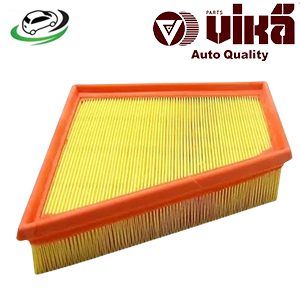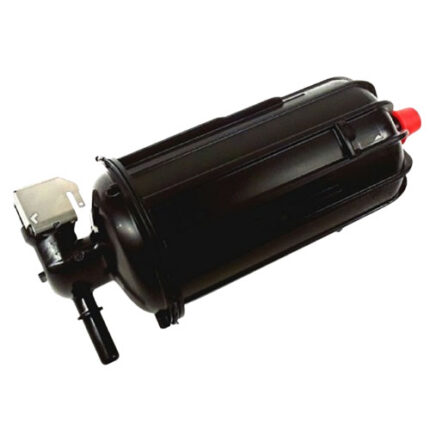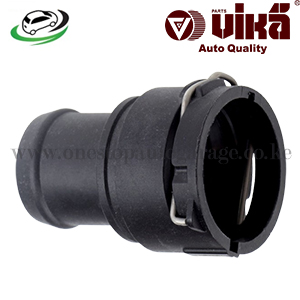-40%
The air filter is a crucial component of a vehicle’s engine system, responsible for filtering out dirt, debris, and contaminants from the air that enters the engine. This ensures that only clean air reaches the engine, optimizing performance, fuel efficiency, and engine longevity. Understanding the design, function, benefits, common issues, and maintenance of the air filter is essential for maintaining a vehicle’s overall health and performance.
Function and Importance
- Air Filtration: The primary function of the air filter is to remove particulate matter such as dust, pollen, dirt, and other contaminants from the air before it enters the engine. Clean air is essential for efficient combustion and overall engine performance.
- Engine Protection: By filtering out contaminants, the air filter helps protect engine components, such as the cylinders, pistons, and valves, from wear and damage. Contaminants can cause abrasion and erosion, leading to reduced engine life and increased maintenance costs.
- Fuel Efficiency: A clean air filter ensures that the engine receives the correct air-to-fuel ratio for optimal combustion. This helps maintain fuel efficiency and can prevent issues like decreased mileage and increased fuel consumption.
- Performance: A properly functioning air filter contributes to engine performance by ensuring smooth airflow and efficient combustion. This can lead to better acceleration, responsiveness, and overall driving experience.
Design and Construction
- Materials:
- Filter Media: Air filters are typically made from materials such as paper, cotton, or foam. The filter media is designed to trap and hold particles while allowing air to pass through.
- Paper Filters: Often used in standard automotive air filters, paper filters are made from pleated cellulose or synthetic fibers and are designed for high dirt-holding capacity.
- Cotton Filters: Reusable air filters are often made from cotton gauze, which is oiled to enhance filtration. They offer high airflow and can be cleaned and reused.
- Foam Filters: Foam filters are made from layered foam and are commonly used in high-performance or off-road vehicles. They offer good filtration and are washable.
- Filter Media: Air filters are typically made from materials such as paper, cotton, or foam. The filter media is designed to trap and hold particles while allowing air to pass through.
- Construction:
- Frame: The frame of the air filter is typically made from a sturdy material such as plastic or metal. It provides structural support and ensures a proper seal within the air filter housing.
- Seals: Air filters are equipped with rubber or foam seals that prevent unfiltered air from bypassing the filter and entering the engine.
- Design:
- Pleated Design: Many air filters feature a pleated design that increases the surface area of the filter media, allowing for greater dirt-holding capacity and improved airflow.
- Pre-Filters: Some air filters include pre-filters or additional layers to capture larger particles before they reach the main filter media.
Benefits
- Improved Engine Performance: A clean air filter ensures that the engine receives an adequate supply of clean air, which is essential for efficient combustion and optimal performance.
- Enhanced Fuel Efficiency: By maintaining the correct air-to-fuel ratio, a clean air filter helps improve fuel efficiency, reducing the frequency of refueling and lowering overall fuel costs.
- Extended Engine Life: Protecting the engine from contaminants helps reduce wear and tear on engine components, contributing to a longer engine lifespan and reducing the need for costly repairs.
- Reduced Emissions: Efficient combustion facilitated by a clean air filter can help reduce exhaust emissions, contributing to a cleaner environment and meeting emission standards.
- Cost Savings: Regular maintenance of the air filter can prevent issues such as clogged filters that lead to reduced performance and increased fuel consumption. This can result in long-term cost savings by avoiding costly repairs and maintaining fuel efficiency.
Common Issues
- Clogging:
- Dust and Debris: Over time, the air filter can become clogged with dust, dirt, and other debris. A clogged filter restricts airflow, leading to decreased engine performance and fuel efficiency.
- Reduced Airflow: As the filter becomes clogged, it can limit the amount of air reaching the engine, causing rough idling, reduced acceleration, and overall poor performance.
- Filter Damage:
- Tears and Holes: Physical damage to the air filter, such as tears or holes, can allow unfiltered air to bypass the filter and enter the engine, potentially causing damage.
- Loose Fit: If the air filter does not fit properly within the air filter housing, it can allow unfiltered air to enter the engine, reducing the effectiveness of the filter.
- Contaminant Build-Up:
- Oil and Fuel Contamination: In some cases, oil or fuel can seep into the air filter, reducing its effectiveness and leading to clogging or damage.
- Pollen and Allergens: In areas with high pollen or allergen levels, the air filter may become clogged more quickly, requiring more frequent replacement.
Maintenance and Inspection
- Regular Checks:
- Visual Inspection: Periodically check the air filter for visible signs of dirt, damage, or clogging. Look for any discoloration, debris, or tears in the filter media.
- Filter Condition: Assess the overall condition of the filter, including the frame and seals. Ensure that the filter is properly seated in the air filter housing.
- Replacement Intervals:
- Manufacturer’s Recommendations: Follow the vehicle manufacturer’s recommendations for air filter replacement intervals. This information can be found in the owner’s manual or maintenance schedule.
- Driving Conditions: In dusty or challenging driving conditions, such as off-roading or high-pollution environments, the air filter may need to be replaced more frequently.
- Cleaning:
- Reusable Filters: If using a reusable air filter, follow the manufacturer’s instructions for cleaning and re-oiling. Ensure that the filter is thoroughly dried before reinstalling it.
- Avoid Water Damage: Avoid using excessive water or harsh cleaning agents that can damage the filter media or reduce its effectiveness.
- Professional Assistance:
- Mechanic’s Inspection: If you are unsure about the condition of the air filter or if you experience performance issues, seek professional assistance. A mechanic can inspect and replace the air filter if necessary.
Replacement Process
- Locate the Air Filter:
- Air Filter Housing: Find the air filter housing, which is typically located near the engine bay. It may be secured with clips, screws, or bolts.
- Remove the Old Filter:
- Housing Removal: Open or remove the air filter housing to access the filter. Carefully remove the old filter, taking note of its orientation and position.
- Install the New Filter:
- Proper Fit: Place the new air filter into the housing, ensuring that it fits securely and is properly seated. Check for any gaps or misalignment.
- Reassemble: Reattach the air filter housing and secure it with clips, screws, or bolts. Ensure that the housing is properly sealed to prevent air leaks.
- Verify Operation:
- Start the Engine: Start the engine and listen for any unusual noises or performance issues. Ensure that the engine runs smoothly and that there are no air leaks.



